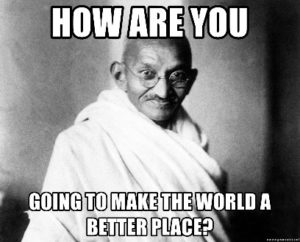THEOLOGICAL RESOURCE BASE - Introduction
- Published:
The world in crisis – why care of the planet is a religious & spiritual imperative
September 1 sees the start of the Season of Creation every year, and this year we explore what our diverse faiths tell us about looking after our common home, planet earth. Although the Season of Creation is a Christian initiative, the shared nature of Creation and of our planet means that it is an opportunity for people of all faiths and none to celebrate the life force that flows through all of us. It is an opportunity to share our theological wisdoms and re acquaint ourselves with shared values that underpin our care of the elements of life we call “the commons”.
 The 2021 Season of Creation has arrived in the midst of the Covid19 pandemic, collapsing infrastructures, relentless population growth and poverty all contained within the ever present climate emergency have plunged Planet Earth into a spiralling, multifaceted crisis of unfathomable proportions.
The 2021 Season of Creation has arrived in the midst of the Covid19 pandemic, collapsing infrastructures, relentless population growth and poverty all contained within the ever present climate emergency have plunged Planet Earth into a spiralling, multifaceted crisis of unfathomable proportions.
Responsibility for the management of all these crises lies with governments. Yet the survival requirements to step up, take ownership and implement decisive action plans have consistently tripped over the financial interests of big business, the fear of politically unpopular asks and the power and greed consumerist paradigm in which humankind has become accustomed to operating.
With government structures failing to take responsible action, what is left?
We are left with “We, the people”.
At least two thirds of the world’s population (probably more) identify with a religion or spiritual belief that guides the thinking, speaking and doing of their adherents. Most of these spiritual systems are based on moral codes designed to help people coexist in harmony and justice, not only with fellow humans but also with Nature and the Environment that supports our existence.
In a 2015 paper entitled Responsibility Rejected. Our obligation now is to act on the guidelines, which was published as one of the Colombo Papers in Holy Books and Eco Spirituality1, Ian Rex Fry of Melbourne’s University of Divinity defines the guidelines as being the moral imperative based in faiths.
While faiths provide abundant guidelines on how to live with each other and with the planet, these guidelines have been consistently ignored, while the false promises of riches, power and worldly success have seduced humanity.
Everywhere we look, we see poverty and suffering, floods, earthquakes, increasingly wild wildfires, changing weather patterns - clear indicators that things need to change, and soon. We look for ways to honour the source of all life which for all of us means the earth, water and air. Yet, for people of all religions, these gifts represent unassailable proof that the Source, our Creator, has provided for us and continues to support our existence on this planet.
Real change can be guided through religions because herein lies the moral compass and authority as well as the call to be better, from the inside. Traditionally, places of worship have been the gathering houses for people who come willingly to be guided and taught. These are the environments in which people want to feel better, to contribute, to manifest kindness and to experience compassion.
These are the arenas in which we seek – and find - the best in ourselves.
- Holy Books and Eco Spirituality edited by Abraham Karickam PhD. ISBN 81-902365-4-7 Published January 2015 by Dr Alexander Marthoma Centre for Dialogue, Kottarakara and Cosmic Community Centre, Karickam
Who we are

SAFCEI (Southern African Faith Communities’ Environment Institute) is a multi-faith organisation committed to supporting faith leaders and their communities in Southern Africa to increase awareness, understanding and action on eco-justice, sustainable living and climate change.
Featured Articles
-

South Africa: Who Ends Up Paying If DMRE Cooks the Price of Nuclear Power?
-

South Africa’s nuclear energy expansion plans continue to draw criticism, environmental NGOs chew over legal challenge
-

Earthlife Africa and SAFCEI respond to latest unsettling nuclear news regarding the ministerial determination
-

Open Wing Alliance Africa (Virtual) Summit 2023
-

The Green Connection and SAFCEI respond to energy minister's divisive and deflecting comments
-

Job Vacancy: FLEAT Coordinator







